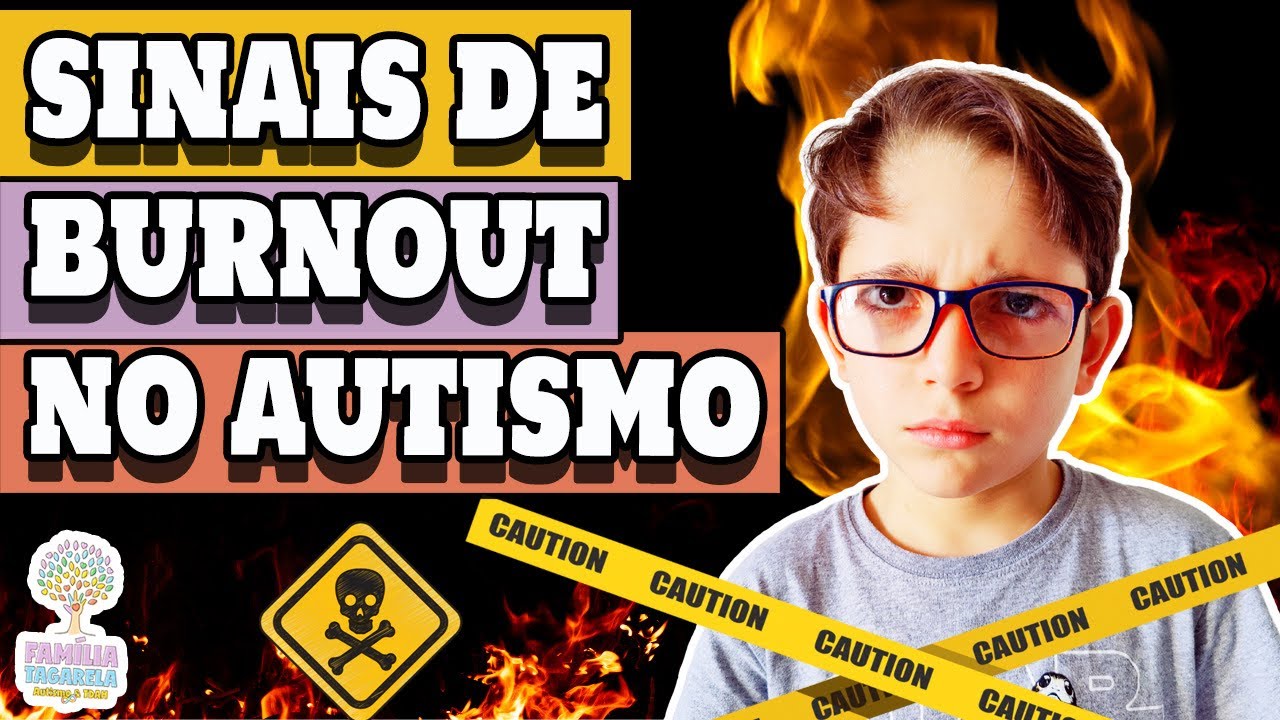Why High Masking Autistics Experience Burnout
Summary
TLDRThis video script delves into the experience of 'autistic burnout,' a lesser-known aspect of autism characterized by chronic exhaustion, loss of function, and reduced tolerance to stimuli. The speaker, Chris, shares personal struggles with this condition, explaining its symptoms, the challenges it presents in daily life, and the importance of understanding and managing it. The script offers insights into the sensory overload, emotional turmoil, and the need for self-advocacy and support from loved ones during such periods.
Takeaways
- 🔥 Autistic burnout is characterized by pervasive, long-term exhaustion, typically lasting 3 months or longer, loss of function, and reduced tolerance to stimuli.
- 🌫 Chronic exhaustion in autistic burnout feels like an overwhelming, constant depletion of energy, even after extended periods of sleep.
- 😖 Loss of skills during burnout includes difficulties in thinking, remembering, creating, executing plans, and performing daily activities, leading to frustration and anxiety.
- 😨 Reduced tolerance to stimulus results in increased sensitivity to environmental stimuli, causing more frequent meltdowns and shutdowns.
- 🏠 During burnout, autistic individuals may seek isolation and avoid social engagements and environments that cause overstimulation.
- 🤯 Autistic burnout can lead to physical pain, including headaches and sensitivity to sounds, textures, and lights.
- 😔 The experience of burnout can be dangerous, leading to feelings of being trapped within one's own body and mind, and potentially resulting in suicidal thoughts.
- 🧠 The pain and challenges of burnout can disrupt executive functioning, making it difficult for autistic individuals to self-advocate and care for themselves.
- 🌿 Spending time in nature and embracing soothing activities can aid in recovery from burnout, as natural sounds and environments are often more tolerable.
- 👕 Wearing comfortable clothes and maintaining basic routines, like getting dressed and brushing teeth, can provide structure and support during burnout.
- 🤝 Support from understanding friends, family, or loved ones is crucial, as they can provide silent support and practical help without adding to sensory overload.
Q & A
What is the main topic of the video script?
-The main topic of the video script is 'autistic burnout', discussing its symptoms, experiences, and ways to cope with it.
How does the speaker describe the feeling of having an autistic burnout?
-The speaker describes the feeling of autistic burnout as pervasive exhaustion, with the brain feeling like it's on fire, experiencing electric shocks, and overall pain. It's also characterized by heightened sensitivity to minor sounds and constant feelings of being overwhelmed.
What is the definition of autistic burnout according to Professor Dora Raymaker?
-According to Professor Dora Raymaker, autistic burnout is a syndrome resulting from chronic life stress and a mismatch of expectations and abilities without adequate supports, characterized by long-term exhaustion, loss of function, and reduced tolerance to stimuli.
What are some of the symptoms of chronic exhaustion as described in the script?
-Chronic exhaustion in the context of autistic burnout includes mental, physical, and emotional exhaustion, feeling depleted of energy, and struggling with overextension in daily life.
How does the speaker describe the impact of burnout on their ability to perform daily tasks?
-The speaker describes a significant loss of skills during burnout, making it difficult to perform activities of daily living, execute plans, use vocational skills, socialize, regulate emotions, and live independently.
What does the script suggest about the connection between autistic burnout and sensory sensitivity?
-The script suggests that during autistic burnout, individuals have a massively reduced tolerance to stimuli, leading to increased sensitivity to environmental stimuli, more frequent over-stimulation, and a higher likelihood of meltdowns and shutdowns.
What are some of the dangers associated with autistic burnout as mentioned in the script?
-The dangers of autistic burnout include isolation, potential suicidal thoughts, neglect of self-care, and the possibility of losing a job or having to frequently call in sick due to the inability to function properly.
How does the speaker differentiate autistic burnout from non-autistic depression or burnout?
-The speaker differentiates autistic burnout by emphasizing its unique symptoms such as the need to isolate, reduced sensory stimuli tolerance, and the physical pain associated with sensory over-stimulation, which are not typically addressed in traditional suggestions for dealing with non-autistic depression or burnout.
What advice does the speaker give for someone experiencing autistic burnout?
-The speaker advises to eat what one wants, find quiet and soothing places, wear comfortable clothes, embrace activities that feel soothing, and maintain basic routines like getting up, getting dressed, and brushing teeth even when they feel overwhelming.
What is the speaker's perspective on the importance of understanding autistic burnout?
-The speaker believes that understanding autistic burnout is crucial for both autistic individuals and those who are close to them, as it helps in providing the necessary support and accommodations to manage and recover from burnout.
How does the speaker address the issue of rumination during autistic burnout?
-The speaker addresses rumination as an intensified feature during burnout, where negative thoughts and past experiences replay in the mind, potentially leading to feelings of anger, fear, and pushing people away.
Outlines

This section is available to paid users only. Please upgrade to access this part.
Upgrade NowMindmap

This section is available to paid users only. Please upgrade to access this part.
Upgrade NowKeywords

This section is available to paid users only. Please upgrade to access this part.
Upgrade NowHighlights

This section is available to paid users only. Please upgrade to access this part.
Upgrade NowTranscripts

This section is available to paid users only. Please upgrade to access this part.
Upgrade NowBrowse More Related Video

Esgotamento no Espectro Autista (Regressão Autista em Adultos), Burnout Autista | Sintomas, Causa

AUTISTIC BURNOUT: In Conversation with Transforming Autism - Dora Raymaker

BURNOUT NO AUTISMO: Sinais e Sintomas de Sobrecarga em AUTISTAS

Reacting to the Newest Autism Cure

Jordan Peterson: How Autism and Intelligence Connect

Smoking and COPD | Nucleus Health
5.0 / 5 (0 votes)